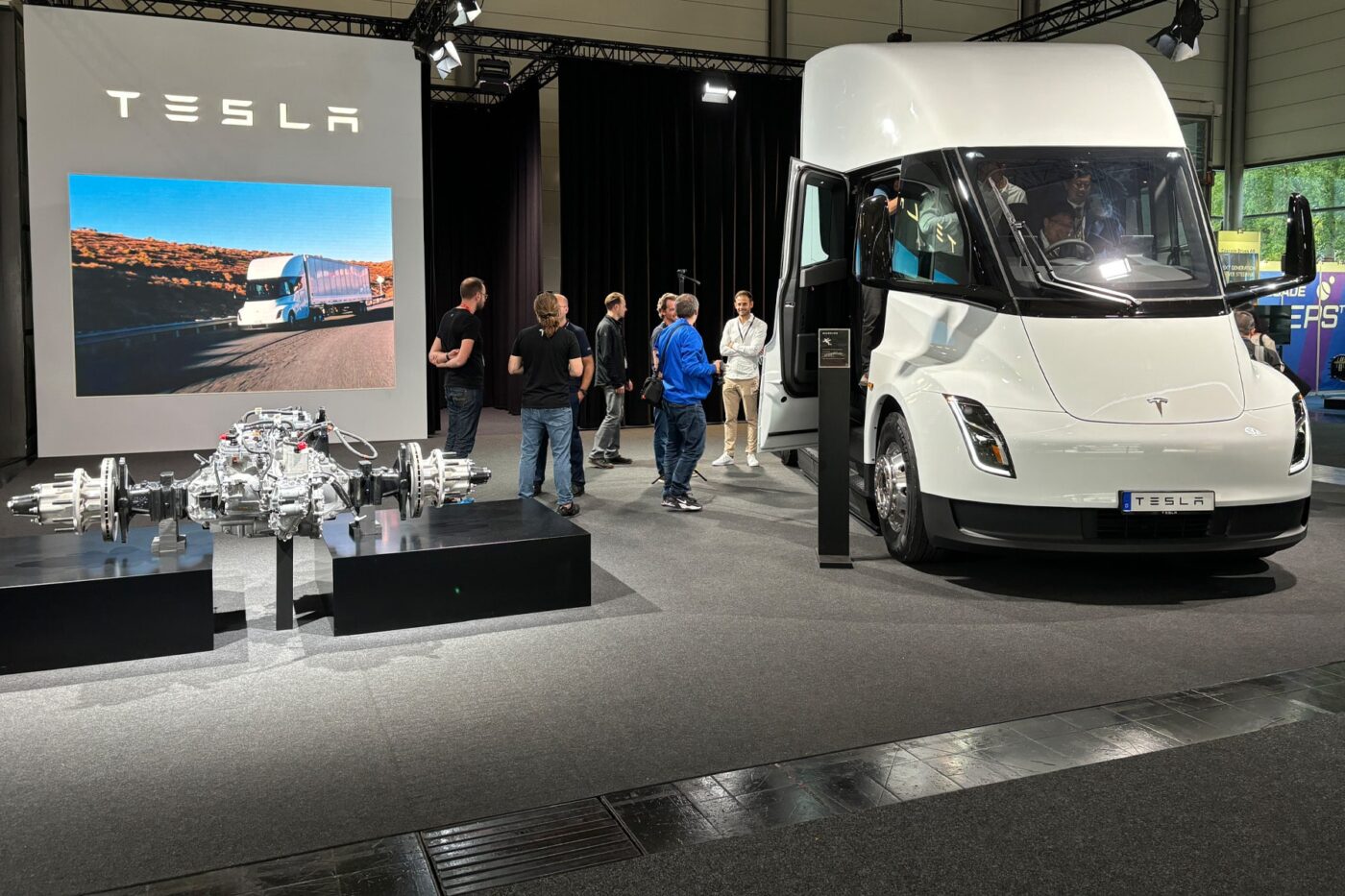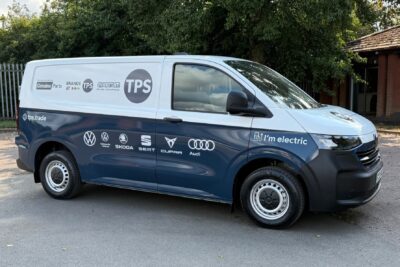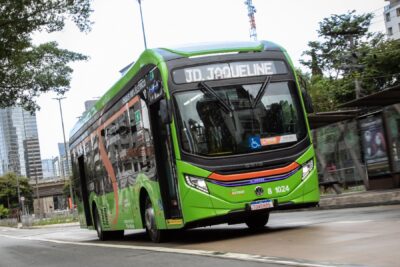
Tesla wants to bring the Semi to Europe – but not before 2026
You first have to find the Tesla Semi. It is crammed into the corner, standing at the edge of Hall 12 – right next to Volkswagen Commercial Vehicles, which has a much larger stand. And MAN is not far away, either. Nevertheless, there were queues in front of Tesla’s battery-electric truck. Getting into the driver’s seat took some time. The queues in Hall 11, where the test drives take place, were even longer. If you want to get into the passenger seat and take a ride, you might have to wait a few hours.
Fritz-Gerhard Hamann is no exception. The medium-sized German haulage company from Holzminden (seven articulated trucks and 18 swap body trailers, three of which are already electric) pre-ordered a Tesla Semi in 2019. He paid a deposit of 17,000 euros at the time. Now, he wants to get into the truck and find out when it will be delivered to Europe. Many visitors at the trade fair asked themselves the same question – not only haulage companies but also engineers from other manufacturers. They all want to take a closer look at the electric truck and find out how Tesla has managed to be 65 per cent more efficient than comparable diesel trucks with a full payload.
Dan Priestley gave a highly acclaimed presentation on Tuesday evening at the IAA. He is head of truck development at Tesla – and appears very modest. At the beginning of his keynote speech, he praised the other manufacturers, particularly for their rapid development of electric trucks for short, medium and long distances. ‘The OEMs have done a great job,’ the Tesla manager said. He then got going and unpacked the information about the Semi – and made one thing clear: “We want to be a part of it.” In his 15-minute presentation (video below), Priestley emphasised the competitiveness of the Tesla Semi and commented on the European launch.
Here are the most important statements:
- Market readiness of the Tesla Semi: Priestley stressed that the Tesla Semi is already in use in North America and achieves a range of 800 kilometres per charge. Most of the vehicles are part of PepsiCo’s Californian fleet. According to Priestley, the long range disproves the argument that electric trucks are unsuitable for long journeys.
- Cost and efficiency benefits: Tesla designed the Semi from the ground up as a battery-electric vehicle to reduce costs and maximise efficiency. Priestley highlighted that the Semi could undercut diesel trucks in terms of operating costs by significantly improving battery weight and, therefore, reducing cost per kilometre.
- Charging technology: The Semi is equipped with proprietary megawatt charging technology that enables fast charging, ensuring the vehicle is idle for as little time as possible. Tesla has already conducted test runs with customers such as PepsiCo, where a Semi has driven over 1,700 kilometres in a 24-hour operation, Priestley said, adding: “We will make sure that customers get the charging solutions they need – such as depot charging like PepsiCo or something similar to the Supercharger network.”
- Robust performance: Priestley also emphasised that the Tesla Semi has been tested in extreme conditions – from steep climbs in California to freezing temperatures in Alaska. These tests prove that the Semi is also suitable for demanding European routes.
- Future plans for Europe: This was probably the part of the presentation that the audience was most interested in. Priestley made it clear that Tesla wants to introduce the Semi in Europe. The truck will be adapted to European regulations and market requirements. However, the debut is not expected before 2026. Production capacity at the factory in Nevada, which is still under construction, will be expanded to more than 50,000 vehicles per year by 2026. It is precisely this mass production that should enable a significant reduction in costs. During a visit to Grünheide in mid-March, Tesla CEO Elon Musk also discussed the plant as a future Semi production site.
- Compliance with strict efficiency criteria: Tesla aims for an extremely low energy consumption rate of 100 kWh per 100 kilometres, making the Semi one of the most efficient electric trucks. Fun fact: during its European tour with the eActros 600, Daimler Truck achieved an average fuel consumption of 103 kilowatt hours per 100 kilometres over the entire tour. That corresponds to a diesel consumption of around 10 litres per 100 kilometres – normal diesel trucks need around 25 litres.
- Easy maintenance: Another advantage of the Tesla Semi is its high level of reliability. Priestley emphasises that 95 per cent of the current fleet has an uptime without major breakdowns, and repairs can usually be carried out within 24 hours.
Dan Priestley presented the Tesla Semi in Hanover – naturally – as an innovative and economically competitive solution for the European market. Tesla plans to further advance the electrification of heavy goods transport and reduce costs through vertical integration. In addition to fuel consumption, the payload will be the decisive factor. In conclusion, Priestley said: “We are looking forward to bringing the Semi to Europe.”
The fact that the Americans will still need some time to adapt the Semi for the European market is good news for the domestic industry. As with the eActros 600, it can bring competitive products to the market sooner. Of course, all players know that Tesla should not be underestimated. And so many logos could be seen on the jackets and waistcoats of onlookers around the Semi. From MAN to Daimler Truck to Iveco. Because they all know that when Tesla comes, it’s coming for real. And they obviously want to be prepared for it.
That is also important, as Fritz-Gerhard Hamann confirms: “If it’s true that the Tesla Semi only needs one kilowatt hour per kilometre even when fully loaded, then that would be sensational.” He is sticking to his pre-order, even though he has only “driven a mini lap.” However, Hamann is not entirely rational either. “I’ve been driving a Tesla since 2015; the whole family drives Teslas. We even have a Roadster.” So the situation is clear.




0 Comments